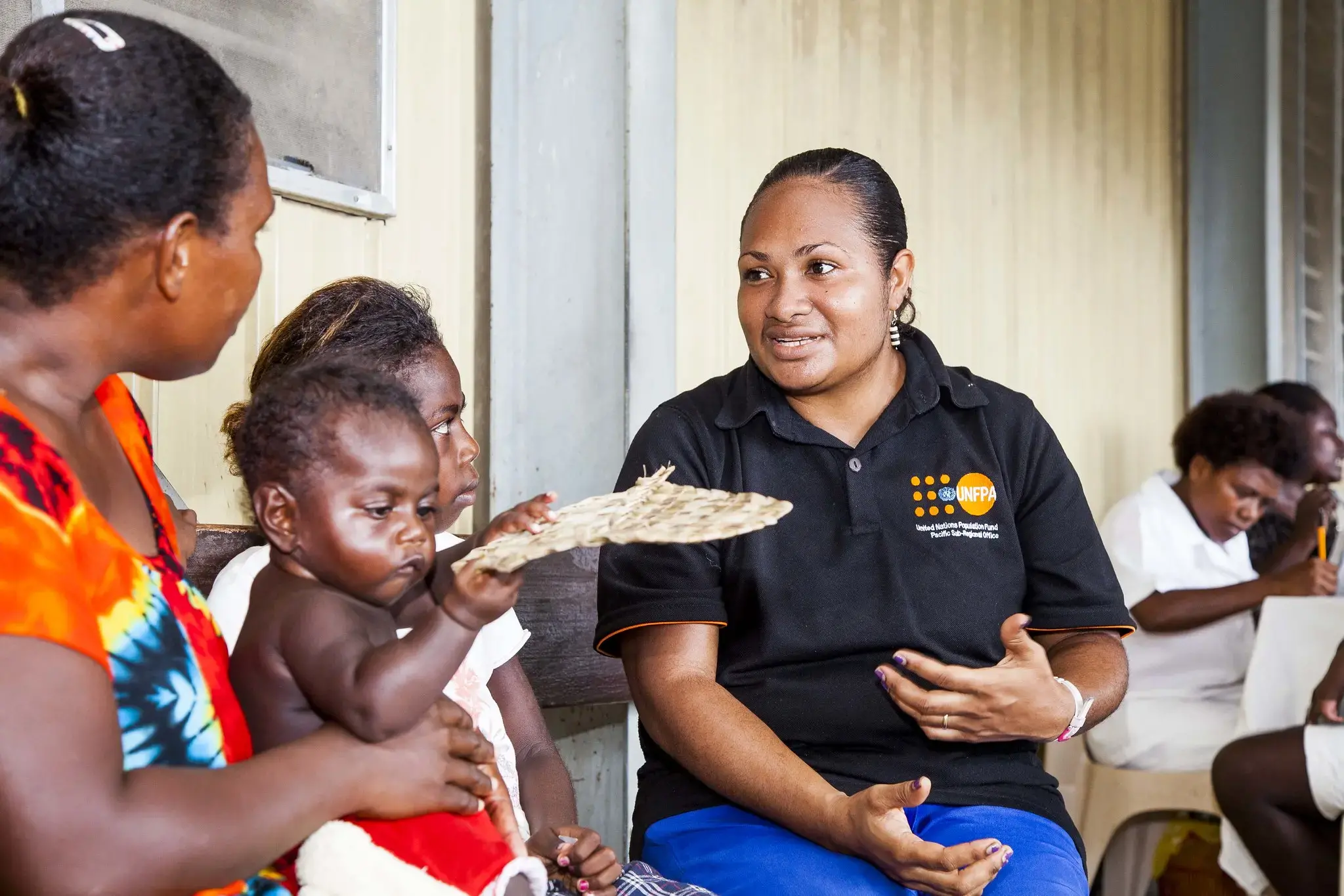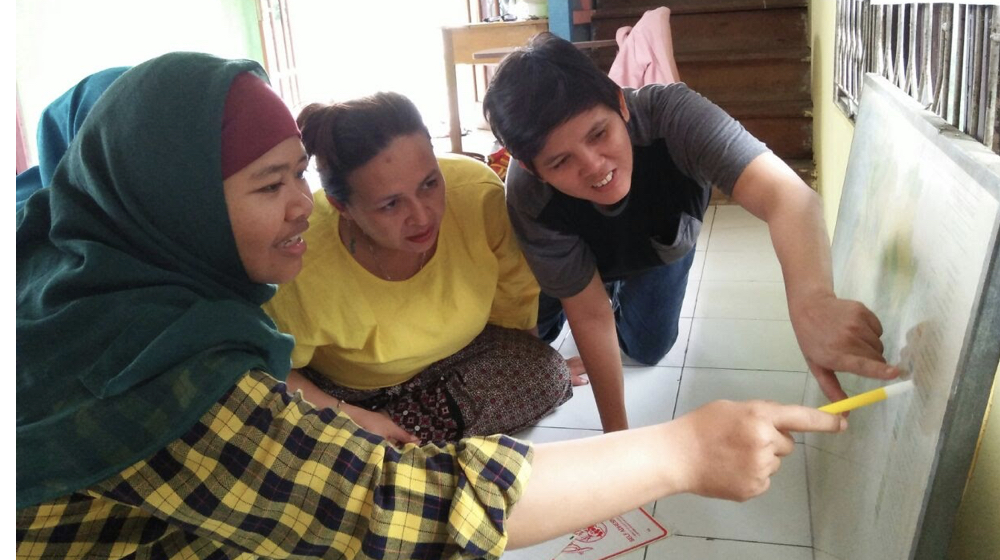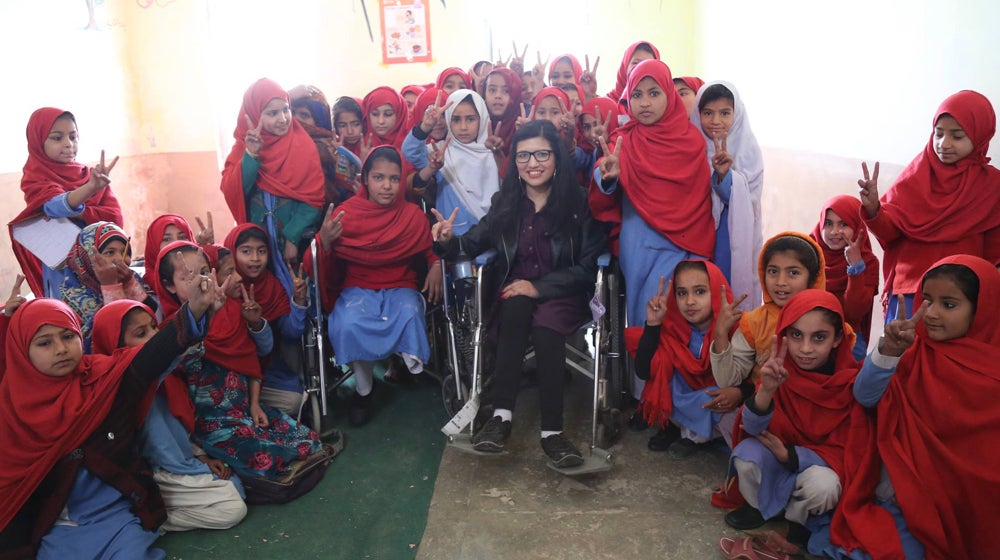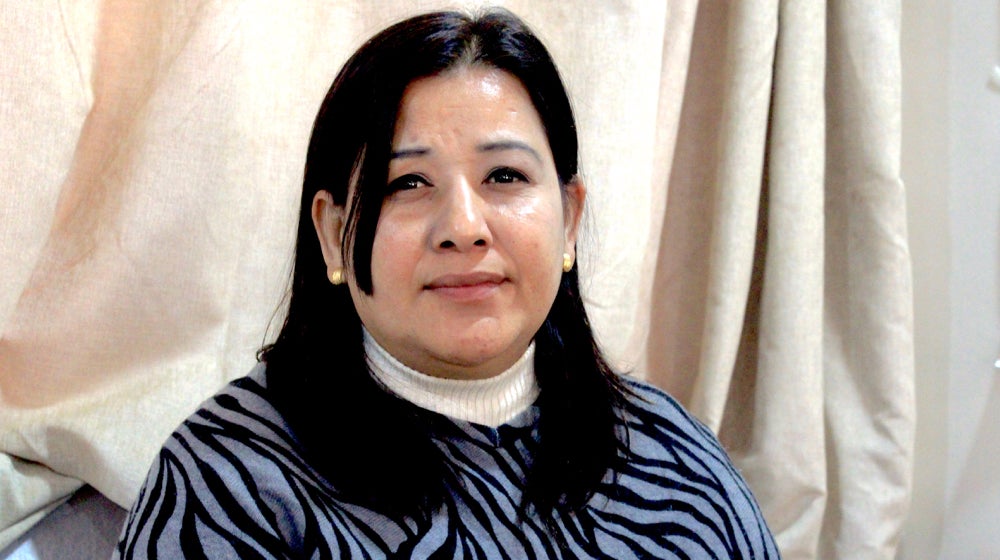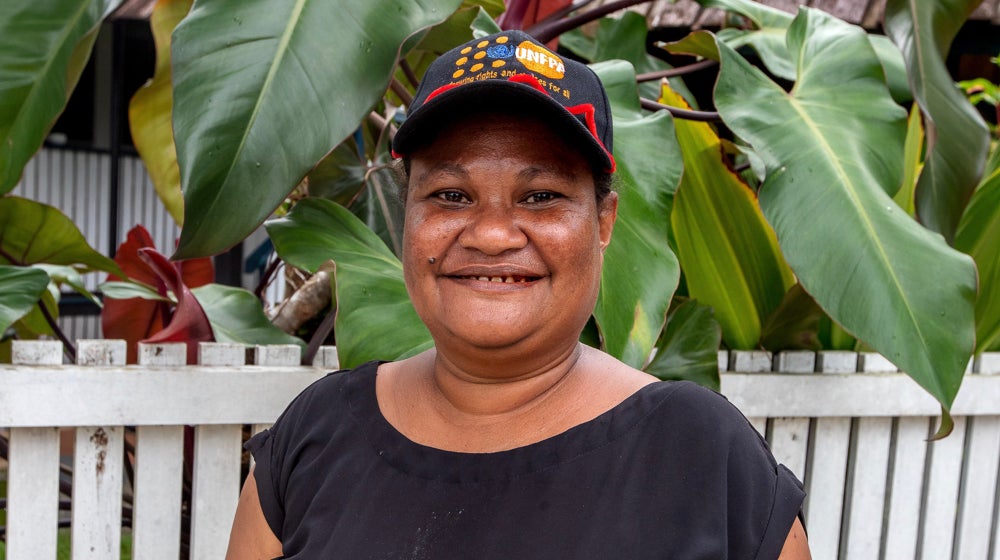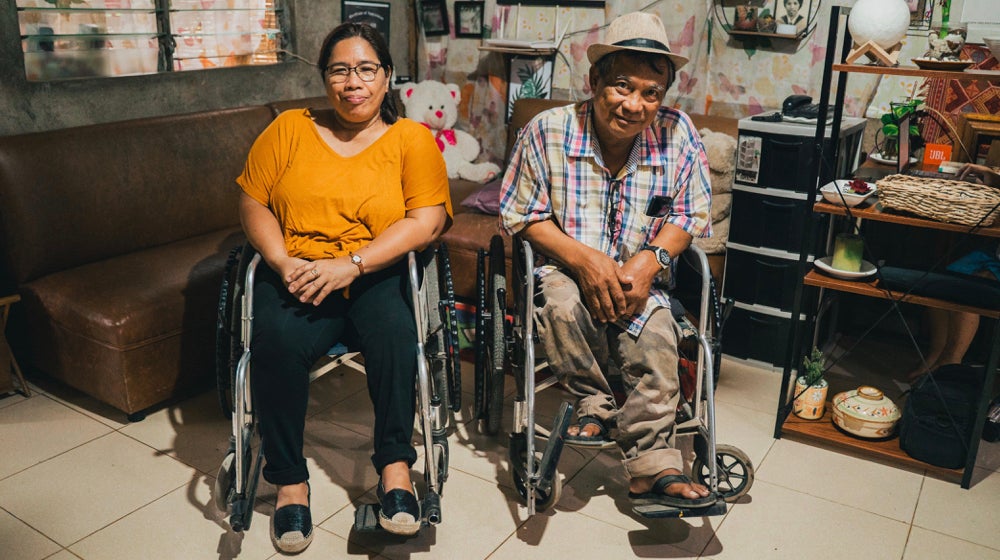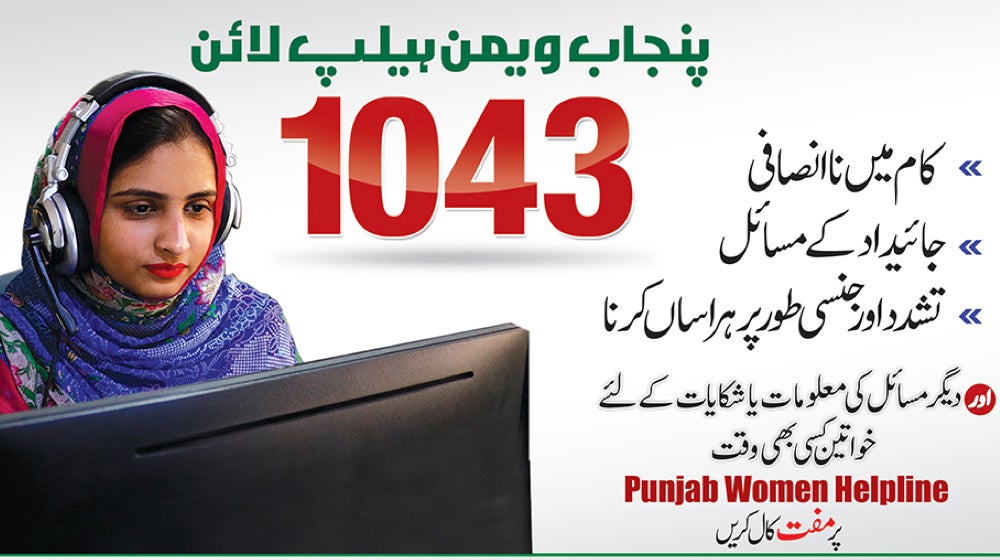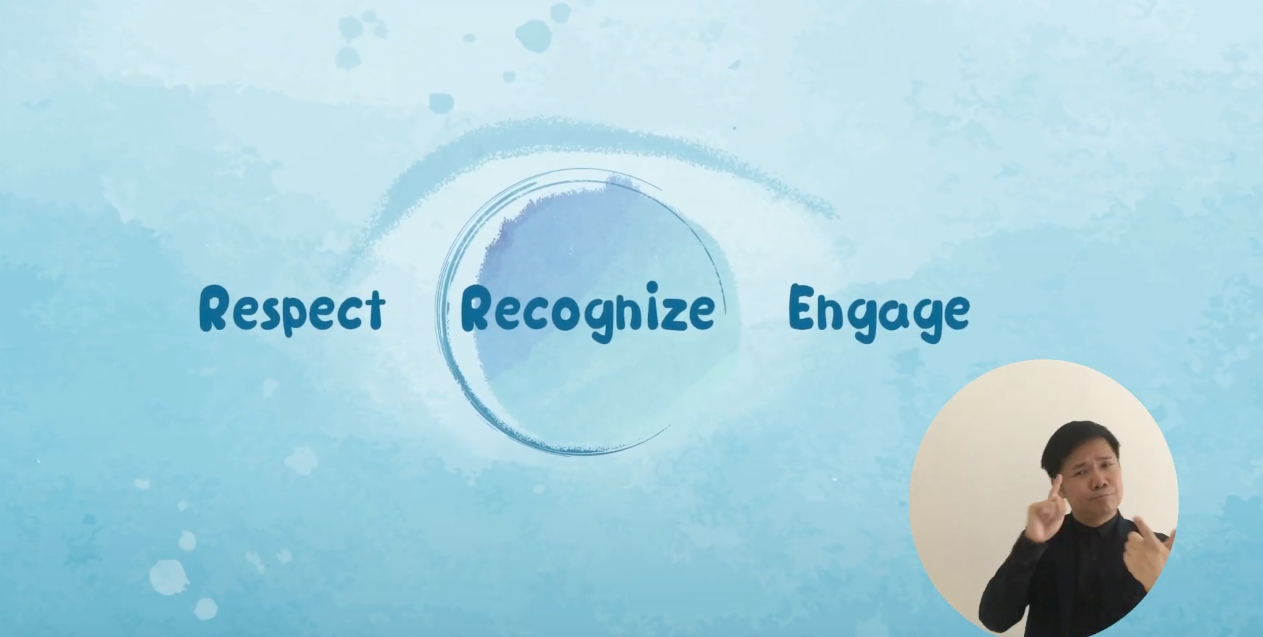Supporting survivors of gender-based violence living with disabilities
Supporting survivors of gender-based violence living with disabilities
Women and girls living with disabilities are highly vulnerable to gender-based violence (GBV). This collection of stories from across Asia and the Pacific looks at the barriers and challenges faced by advocates and frontline responders who are tackling the issue. We must ensure that everyone can access GBV support services and connect with the networks of mental health providers and legal advisors to better uphold the fundamental human rights of people living with disabilities.
Indonesia: Muvitasari works for the PKBI (Indonesia Planned Parenthood Association) DKI Jakarta Chapter, which implements a sex worker outreach programme. PKBI DKI coordinates 16 organizations who deliver programmes for female sex workers across 26 districts in Indonesia. She works on one of the projects that focuses on preventing both HIV and gender-based violence among female sex workers. The project provides information and services to help protect female sex workers, including those with disabilities. READ MORE
“For female sex workers with disabilities, there will be more layers of vulnerability”
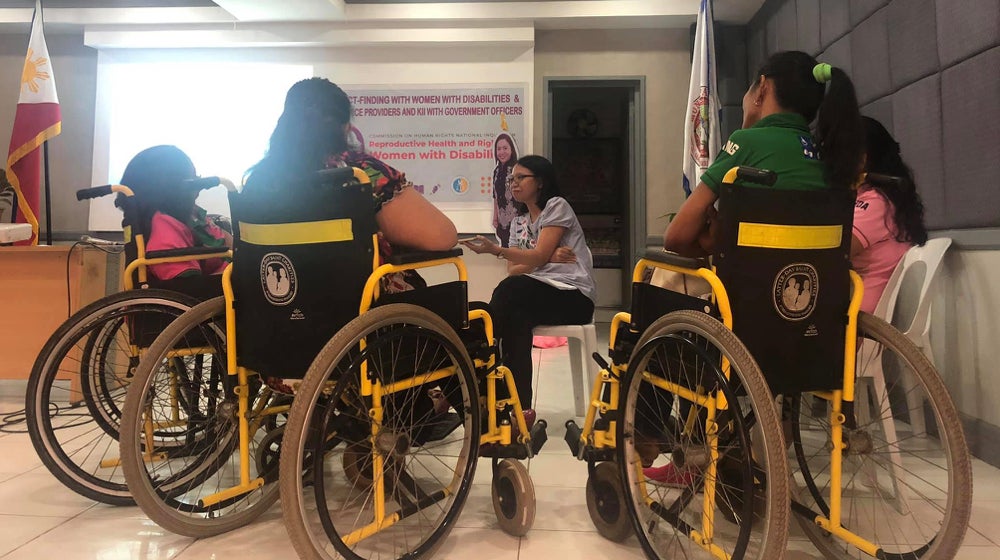
“Sometimes we are the first responders for
women with disabilities.”
-Attorney Krissi Shaffina Twyla Rubin, Office-in-Charge of the Commission on Human Rights Philippines’ Gender Equality & Women’s Human Rights Center
Pakistan: Abia Akram is a disability rights activist. She is the founder of the National Forum of Women with Disabilities in Pakistan, and the Chairperson of the Asia Pacific Women with Disabilities Network. She lobbies with policymakers and decision makers in the public, private and development sectors to include persons with disabilities in the process. She conducts consultations for the empowerment of her community by creating an accessible environment, and promotes accessible information for persons with disabilities to better avail of health, education and livelihood services. READ MORE
“Service providers are not aware about the rights of women and girls with disabilities.”
Nepal: Pratima Gurung is the General Secretary for the Indigenous Persons with Disabilities Global Network and Chair of the National Indigenous Disabled Women Association Nepal (NIDWAN) and a faculty member at Padma Kanya College in Kathmandu. “Intersectionality is at the core of our work,” Pratima says. “Multiple identities get intersected in many layers. Too often indigenous women with disabilities are invisible, voiceless and excluded within our own constituencies.” READ MORE
“There has not been a serious attempt by government to combat this rise in discrimination and violence faced due to multiple and intersecting identities. We are not safe and our sisters are not safe within our homes.”
-Pratima Gurung, National Indigenous Disabled Women Association Nepal (NIDWAN)
Papua New Guinea: Edna Tounokon works with the Milne Bay Provincial Health Authority as a Senior Social Worker at a Family Support Center. She manages cases that come to the clinic, offering counselling to survivors who seek assistance, helping them access medical care, paralegal services for interim protection orders, and even organising a safe place for them to stay.
She tells the story of a woman who came in with her child who had a disability. “The child was 14 years old and had been raped by her father,” Edna says. “The mother had been abused for a number of years, finally they came to get help.”
The difficult journey to the hospital took them three days of travel by sea. After a few weeks in Edna’s care, the daughter had a baby in the hospital. “The mother refused to return to her husband for fear for their safety.” she says. “She wanted to take her daughter and the baby back to her family in Port Moresby.”
They stayed at the hospital in temporary accommodation for over three months. “During this time I counselled them and tried to find money here and there for their basic needs,” Edna says. “It was a challenge getting money for their flight to Port Moresby to be with her family.”
In the end a member of parliament paid for their tickets and the woman was able to return to her family. “They are doing well now,” she says. “I found out later that the mother had been abducted years ago and been taken to Milne Bay for marriage. Their return to home was important not just for the daughter and the child, but the mother too.” READ MORE
“The child was 14 years old and had been raped by her father. The mother had been abused for a number of years and finally, they came to get help.”
-Edna Tounokon, Senior Social Worker at the Family Support Center, Milne Bay
Philippines: Corazon Bajuyo Clarin is the convenor of the Cebu Disability-inclusive Disaster Risk Reduction Network. A passionate advocate for disability inclusion, she now leads a team of people that provides training to government and public sector workers on how to mainstream inclusivity into disaster preparedness.“We work closely with other organizations or persons with disabilities in every barangay* because our data comes from the barangay itself, from the people there,” says Corzaon. They have established a ‘watchdog group’ of women with disability leaders who report what they hear from their networks. “We look at how women with disabilities are being supported, especially against abuse and violence. Women with disabilities are vulnerable to being bullied, abused or even trafficked.” [*A barangay is a small territorial and administrative district forming the most local level of government.]
The Philippines has incorporated gender and development principles into all public services. “It is not only for people with disabilities but for all programmes for all people,” Corazon says. “We incorporate gender and development programmes that address the constraints of persons with disabilities.”
Corzaon says it’s important to engage women with disabilities who are not given proper care within the workforce. “Many are experiencing abuse in the workforce,” she explains. “We coordinate with our Commission on Human Rights. We can take action right away: it’s about knowing what to do or what kind of programme or services that person needs.” READ MORE
“It’s about knowing what to do or what kind of programme or services that person needs.”
-Corazon Bajuyo Clarin Cebu Disability-inclusive Disaster Risk Reduction Network
Pakistan: Madeeha Munawar is a Legal Advisor with the 1043 helpline for survivors of gender based violence in Pakistan. Through its implementing partner, UNFPA worked with the Punjab Women Development Department to train the staff of the 1043 helpline on gender-based violence prevention and response to ensure that quality and ethical standards are met. READ MORE
“I learned the survivor-centered approach and behavior mechanisms that helped me deal with complex cases.”
-Madeeha Munawar, Pakistan
Respect, recognise, engage: Making SRH information/services accessible for persons with disabilities: Amid the #COVID19 pandemic, we have seen how challenges long faced by persons with disabilities have been exacerbated in many ways, through gaps in programmes and support services, to stigma and discrimination all the more. UNFPA Asia-Pacific has created this first-of-its-kind video at UNFPA, seeking to make the film truly accessible to persons with a range of disabilities, including visual impairment. As such, the video treatment may be new for many viewers - the impact disconcerting initially. But the more you watch, the more you realise how crucial accessibility - something the majority of us take for granted - is to millions of persons living with disabilities the world over. We must all do what we can to understand the needs and challenges of persons with disabilities, to foster inclusion and respect, in the spirit of rights and choices for all. Respect, recognise, engage! WATCH THE VIDEO
Learn more
The Impact of COVID-19 on Women and Girls with Disabilities
We Decide: Including and empowering persons with disabilities
Easy Read Materials
Easy Read: Violence against People with Disabilities because of their Gender During COVID-19
Easy Read: Life for women and girls with disabilities in the world during COVID-19

